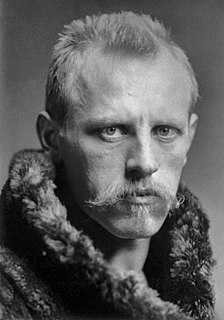A Quote by Pope John XXIII
The nations of the world are becoming more and more dependent on one another and it will not be possible to preserve a lasting peace so long as glaring economic and social imbalances persist.
Related Quotes
The solidarity which binds all men together as members of a common family makes it impossible for wealthy nations to look with indifference upon the hunger, misery and poverty of other nations whose citizens are unable to enjoy even elementary human rights. The nations of the world are becoming more and more dependent on one another and it will not be possible to preserve a lasting peace so long as glaring economic and social imbalances persist.
The United Nations exists not merely to preserve the peace but also to make change - even radical change - possible without violent upheaval. The United Nations has no vested interest in the status quo. It seeks a more secure world, a better world, a world of progress for all peoples. In the dynamic world society which is the objective of the United Nations, all peoples must have equality and equal rights.
If civilization is to survive, the principles of the Prince of Peace must be restored. Shattered trust between nations must be revived. Most important of all, the will for peace on the part of peace-loving nations must express itself to the end that nations that may be tempted to violate their agreements and the rights of others will desist from such a cause. There must be positive endeavors to preserve peace. America hates war. America hopes for peace. Therefore, America actively engages in the search for peace.
I believe we have made a decision now that will permit us to create an economic order in the world that will promote more growth, more equality, better preservation of the environment, and a greater possibility of world peace, we are on the verge of a global economic expansion that is sparked by the fact that the United States at this critical moment decided that we would compete, not retreat.
When you see what is happening with the social network, with Facebook, Twitter and co it is becoming obvious that the reputation of ourselves is becoming more and more important everyday. Image is becoming too much for me, and we are living in a virtual world and sometimes it is very easy to make mistakes. It is more difficult to take responsibility for our mistakes.
The peace we seek in the world is not the flimsy peace which is merely an interlude between wars, but a peace which can endure for generations to come. It is important that we understand both the necessity and the limitations of America's role in maintaining that peace. Unless we in America work to preserve the peace, there will be no peace. Unless we in America work to preserve freedom, there will be no freedom.




































